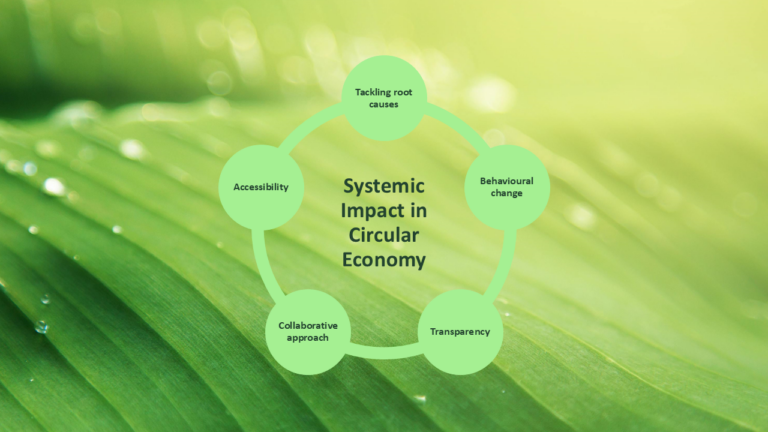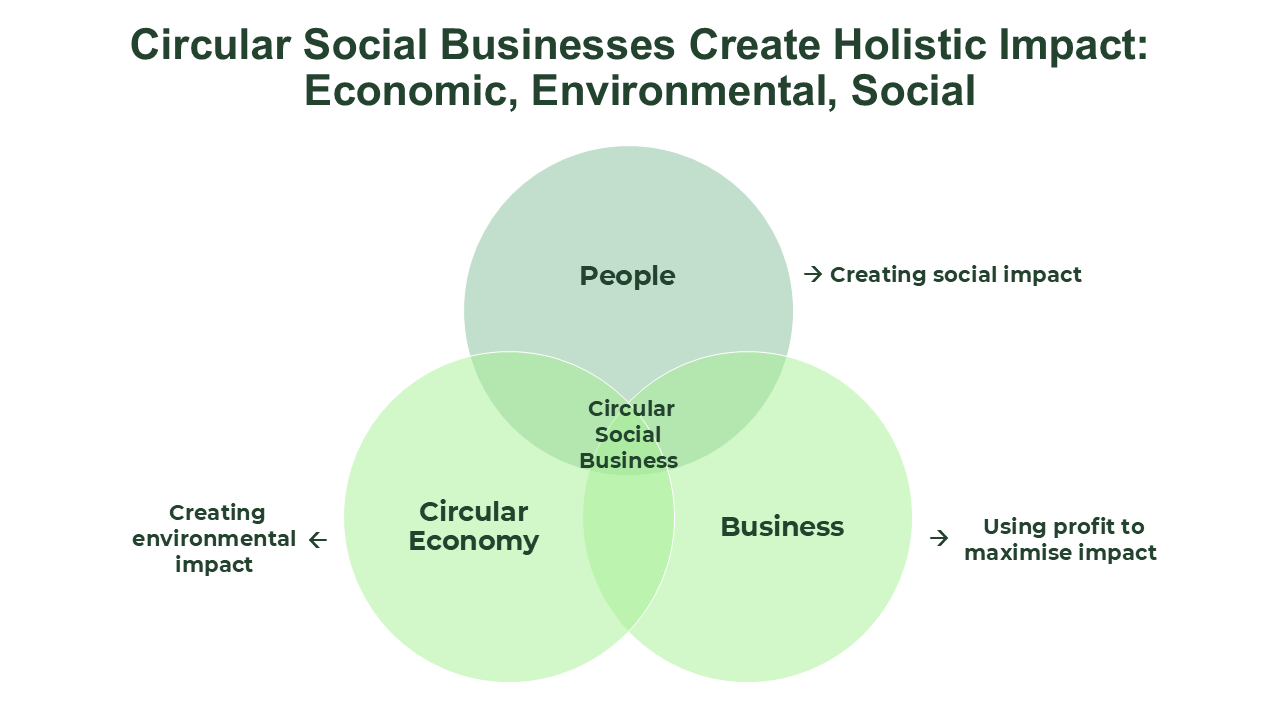
Thinking systemically about the circular economy: How social businesses active in the circular economy can change Germany
When the term circular economy is mentioned, many people think exclusively of ecological and economic potential. But what role does the social dimension play in the circular economy? A new study by Yunus Environment Hub and Bertelsmann Stiftung draws attention to so-called circular social businesses: young and innovative companies that not only conserve resources but also strengthen the common good. The study shows why the social dimension is a decisive key for the path towards a holistic circular economy and how Germany can benefit from circular social businesses.

The new German government is committed to the goal of a circular economy. The National Circular Economy Strategy (NKWS) adopted by the old federal government is to be implemented. This illustrates the growing political will for a transformation towards a comprehensive circular economy. However, policy and funding programs are currently still mainly focused on technological and ecological innovations to pave the way for circular value creation.
Companies that offer not only circular solutions but also solutions for the common good – so-called circular social businesses – have so far received little attention, recognition and support, although they offer great potential for economic, ecological and social impact. These companies are the focus of the study “A Systemic Circular Economy Transition in Germany. The Role and Impact of Circular Social Businesses”, which Yunus Environment Hub and Bertelsmann Stiftung are jointly presenting to the public today.
Of the 274 circular businesses in Germany analysed for this study, 39 per cent can be described as circular social businesses. They fulfil three criteria: (1) a viable business model, (2) a clear environmental contribution through circular strategies such as Reduce, Reuse and Regenerate and (3) a social impact logic that is firmly anchored in their business models. These companies are active in sectors such as food, textiles and packaging and often have local roots.
The analysis shows that circular social businesses rely more heavily on innovative circular strategies such as Rethink and Regenerate than traditional circular startups. Such strategies go beyond pure recycling or efficiency improvements and fundamentally change forms of production and consumption. Their solutions promote social cohesion, local value creation, cooperation, educational opportunities and social empowerment. Circular social businesses therefore not only reduce resource consumption, but also strengthen communities and enable social participation.
Circular social businesses show that the circular economy can be much more than a topic that is about technological solutions – the circular economy can also bring a more holistic approach to the needs of people and society as a whole. To fully realise the potential of the circular economy, social impact should not just be a by-product, but a central part of business and policy strategies. By supporting circular social businesses, the transition to a circular economy can be accelerated, which is both environmentally sustainable and socially inclusive and drives comprehensive change.
The authors of the study, Julia Gschwender and Andrea Naranjo from Yunus Environment Hub and Armando García Schmidt from Bertelsmann Stiftung, also formulate recommendations for strengthening circular social businesses in Germany:
- For businesses: Integrate at least three of the five principles for systemic change – tackle root causes, change behaviours, enable access, foster collaboration and practice transparency – and consistently align growth with social and environmental goals.
- For funders and investors: Expand funding models to include greater social impact and local relevance. Promote the scaling of successful local solutions with broad benefits.
- For political decision-makers: Prominently embed social and public welfare aspects in circular economy strategies such as the NKWS. Target funding programs towards business models that also address the social dimension and use public procurement to strengthen demand for sustainable and socially inclusive solutions.
The report was created as part of the CirculaRise Accelerator, a project funded in the framework of the “Nachhaltig Wirken” program by the German Federal Ministry for Economic Affairs and Climate Action (BMWK) and the European Union via the European Social Fund Plus (ESF Plus).
Photo credit: Yunus Environment Hub